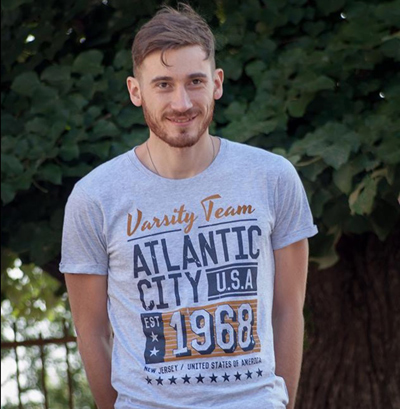The “Replica” (Cue) theatre collects true-life stories of violence at school, to present to the audience all sides concerned. Yet they never present a case to a “judge and jury” and there are no “culprits” on stage. In giving the floor to student, teacher and parent, ultimately abusers and abused ask for mercy: And who is going to help me?
“Bad kids” is a documentary performance, created by the company of a socially-committed theatre - “Replica” – in which real-life voices are heard, against the background of the text by Romanian author Mihaela Michailov depicting violence at school as a social malaise.
 “There are some stories that are devastating, yet, to my mind what makes them so dramatic is what they all have in common,” says the performance’s director Blagoy Boychev. “As it turns out in most cases where there is violence, there is no one to blame, because there are times when students and teachers, as well as parents find themselves in a situation in which it is the only way to react. And if we take a look at violence by children, we shall see they had no other choice – either to defend themselves or to make themselves heard.”
“There are some stories that are devastating, yet, to my mind what makes them so dramatic is what they all have in common,” says the performance’s director Blagoy Boychev. “As it turns out in most cases where there is violence, there is no one to blame, because there are times when students and teachers, as well as parents find themselves in a situation in which it is the only way to react. And if we take a look at violence by children, we shall see they had no other choice – either to defend themselves or to make themselves heard.”
That is why there are no bad children – what they need is love and attention, but frequently they do not receive them, and that is why they copy what adults do.
“What children don’t see is a good example,” Blagoy Boychev says. “When they are aggressive, they are imitating the aggression they see all around. Children watch their parents and see them as constant victims of one kind of aggression or another. Or they just want to survive, so they resort to aggression because in Bulgaria, that is the way to survive. In this country success goes to the more aggressive, the stronger, the thugs with the expensive cars – and watching television we see that even politicians are successful by being aggressive. So, the children are only trying to survive and are aggressive so as not to sink.”
Paradoxical as it may sound, where there is violence, everyone is a victim.
“In this performance we shall not see a culprit, because once we have presented everyone’s personal story, we tend to be less judgmental,” Blagoy Boychev says further. “So, I myself can never point a finger and single out the person whose fault it is, we are all to blame. What we are doing as a theatre is to shine a light on the problem and in this way, to try and help. This should make us all feel more responsible to society, because we are all members of this same society. It is so easy to be blaming anything we can think of on children – we are even demanding to have cameras at school so as to make sure no one is being aggressive towards our children. But we should be sensitive to the fact that years ago, for example, these same teachers were protesting, and there were many people who were not happy about it and did not support them. That is the kind of responsibility we should sit down and think about.”
The “Replica” theatre’s latest performance, called “In absentia reports from Bulgaria – the Odyssey” and based on the essays by Georgi Markov, tells the story of our totalitarian past, in which “the clocks had stopped and which is still catching up with us at every turn even in our day,” as the director says.
“It should not be forgotten that the problems of today are rooted back in the past. For example, red tape, graft as a way of life, they are not the result of democracy in this country, they originated in our society much earlier. What is worrying is that there are voices now spouting manipulations and lies, saying that in those days, in totalitarian times, things were much better. Of course they never say what exactly was better, but it is obvious they need to be answered. And the answer is that in Bulgaria, there was a totalitarian regime, and unless that is said loud and clear, unless that period is scrutinized faithfully, the hands of the clock shall never move forward.”
English version: Milena Daynova
Photos: private library"The place in France where we draw together the future of our children in Bulgarian" - this is how Yaneta Dimitrova described her workplace - the Bulgarian Sunday School "Ivan Vazov" in Paris a year ago in a post on a social network. It is one of the 396..
21 February is International Mother Language Day, first proclaimed as such by UNESCO and later adopted by the UN General Assembly. The right to study and to speak one’s mother tongue, or native language, is a basic human right and a civil right..
152 years after the death of the Apostle of Freedom, the personality of Vasil Levski continues to excite Bulgarians, regardless of whether they are in the country or abroad. The Embassy of Bulgaria in Athens, Greece , has extended an invitation to the..
Exactly 3 years ago, on February 24, Russia’s invasion of Ukraine began – an event that woke up Europe 77 years after the end of World War II and called..

+359 2 9336 661
